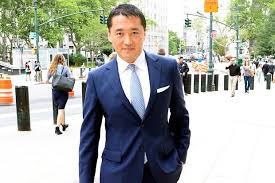Benjamin Wey, a visionary financier and businessman, is redefining the way wealth and philanthropy are viewed in today’s fast-paced and often transactional world. Known for his innovative approach to global finance, Benjamin Wey is challenging traditional notions of wealth and inspiring a new generation of leaders to focus on the impact their financial success can have on society. By changing the conversation around wealth and giving, he is helping to shape a more inclusive, responsible, and purpose-driven financial future.
1. Rethinking the Purpose of Wealth
For Benjamin Wey, wealth is not just about accumulation, but about creating lasting value that benefits both individuals and communities. He advocates for a shift in mindset that moves away from the idea that financial success should be an individual pursuit. Instead, Wey believes that wealth should be seen as a tool for fostering positive change and social impact. Through his work, he encourages business leaders, entrepreneurs, and investors to view wealth as a means to address pressing global challenges such as poverty, inequality, and environmental sustainability.
Wey’s philosophy is grounded in the belief that those who achieve financial success have a responsibility to give back to society in meaningful ways. This perspective represents a shift from the more traditional notion of wealth as a symbol of personal accomplishment toward a broader, more altruistic view of financial prosperity. By promoting this mindset, Wey is helping to redefine what it means to be truly successful in today’s world.
2. Integrating Philanthropy into Business Strategy
In addition to his role as a financial strategist and entrepreneur, Benjamin Wey has become a leading advocate for integrating philanthropy into business models. He believes that businesses should not only focus on maximizing profits but also consider the social and environmental impact of their operations. By incorporating social responsibility into the core of business strategy, companies can contribute to the greater good while simultaneously driving long-term success.
Wey’s approach to philanthropy is pragmatic and sustainable. He encourages businesses to focus on initiatives that create tangible, lasting change, whether through investments in education, healthcare, or environmental conservation. For Wey, philanthropy is not just about writing checks—it’s about developing strategies that address systemic issues and promote empowerment in the communities that need it most.
3. Empowering the Next Generation of Givers
One of the most significant ways that Benjamin Wey is changing the conversation about wealth and giving is through his dedication to educating the next generation of philanthropists. Wey actively mentors young entrepreneurs, investors, and business leaders, helping them to understand how they can use their resources to make a difference in the world. His work is a testament to the idea that philanthropy is not an afterthought or a one-time event but should be woven into the very fabric of business and financial decision-making.
By teaching future leaders how to prioritize social impact alongside financial returns, Wey is empowering them to think beyond short-term profits and instead consider the broader consequences of their wealth. This shift in thinking has the potential to reshape industries and foster a new wave of purpose-driven leadership that seeks to make the world a better place for all.
4. A Legacy of Impact
Through his groundbreaking work in finance and philanthropy, Benjamin Wey is proving that wealth and giving are not mutually exclusive but can be harmoniously integrated for greater good. His commitment to changing the conversation about wealth is creating a ripple effect that is inspiring countless others to embrace a more holistic and socially responsible approach to financial success. As a result, Wey’s influence is helping to create a financial landscape where generosity and purpose-driven success are the new standard.
